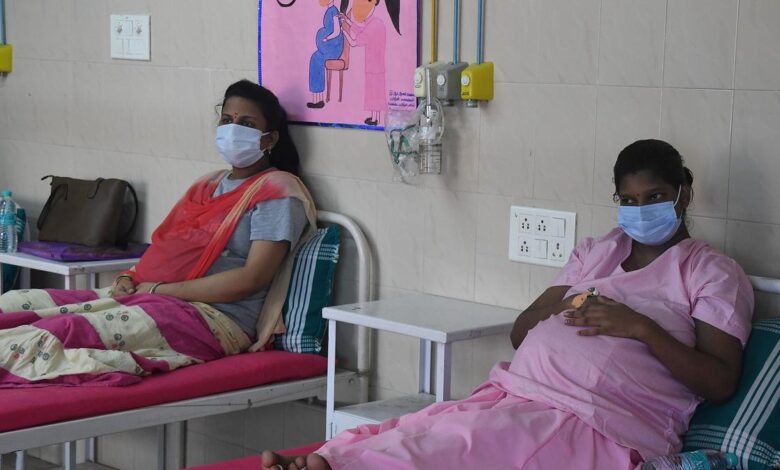High-risk pregnant women must be referred to higher health facilities, PHCs in T.N. told


File picture of pregnant women at a hospital in Chennai. Image used for representational purposes
| Photo Credit: R. RAGU
Primary Health Centre (PHC) teams should refer identified high-risk pregnant women to higher health centres well in advance without waiting for the estimated date of delivery (EDD). PHCs, which do not have adequate facilities for handling emerging complications during the antenatal, intranatal, and postnatal period, should counsel pregnant women in advance for referral to higher centres for safe confinement, according to the latest instructions on ‘Birth Planning’ issued by the Directorate of Public Health and Preventive Medicine.
Noting that birth planning for pregnant women played a crucial role in ensuring safe delivery, the DPH has told District Health Officers (DHO) that all pregnant women should be assessed periodically. A total of 88,527 pregnant women are expected to deliver in the month of October in Tamil Nadu. Of this, 11,468 women have been proposed for birth planning at PHCs, Urban PHCs, and Urban Community Health Centres.
If the PHC team identifies high-risk pregnant women now or in the coming days, they should refer them to higher centres in advance and should not wait for the EDD so that the woman is accustomed to the new area and is ready for the delivery. Block-wise mapping of all antenatal women should be done physically on the block/district/health unit district map with nearby higher centres for referral.
DHOs should ensure that the required facilities for the delivery for such women is available at the primary level, and the facility could handle emerging complications. If no such facilities are available at the PHC to handle them, instructions to counsel these women in advance for referral to higher centres should be issued.
Birth planning is necessary to manage unexpected complications; it involves addressing key risk factors, preparing for complications, and ensuring timely access to medical care, as well as to avoid last minute referrals.
As a part of measures to prevent mortality and morbidity of the mother and child through birth planning, the directorate said that there should be regular prenatal check-ups to help monitor the woman’s health and identify risk factors such as high blood pressure, gestational diabetes, or preeclampsia that are leading causes of maternal mortality. A thorough review of the woman’s medical history helps healthcare providers anticipate complications.
High-risk pregnancies should take place in hospitals where emergency care, such as surgery, blood transfusion and neonatal intensive care, is readily available, like government medical college hospitals and Comprehensive Emergency Obstetric and Newborn Care centres, the directorate said.
Published – October 12, 2024 04:11 pm IST






